Recent arrivals of close to 100,000 refugees in the Somali region of Ethiopia put pressure on already drought affected host communities. With Danish contributions, UNHCR is able to scale up the response.
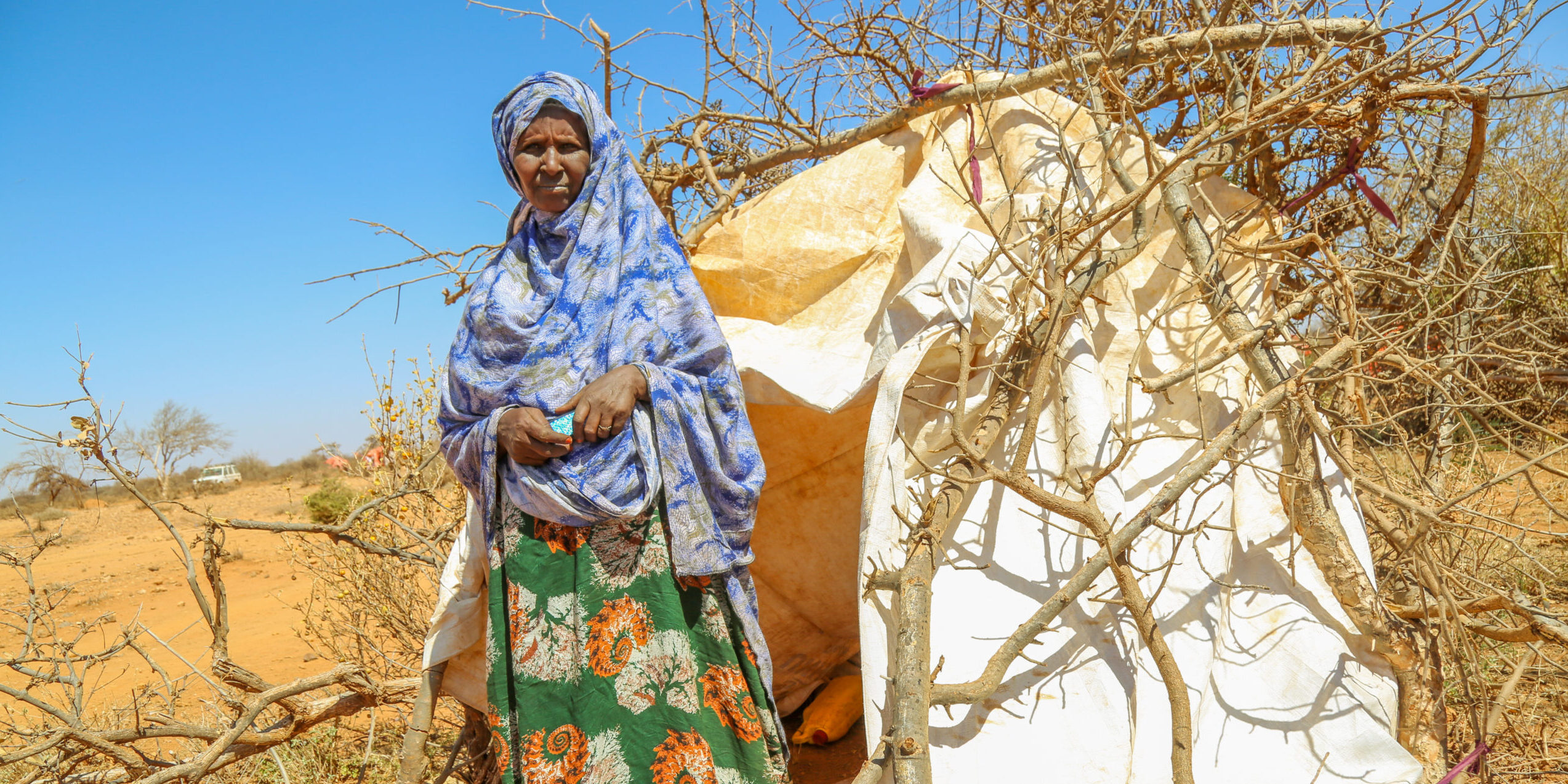
Nearly 100,000 Somalis, mainly women and children, have fled to Ethiopia’s Somali region in the past few weeks to escape clashes and insecurity in the city of Laascaanood, in Sool region.
The catastrophic drought on Africa’s Horn, caused by six consecutive rain seasons without rain and changing climatic conditions, have hit hard in Ethiopia, Kenya, and Somalia. It is threatening lives and livelihoods, amplifying conflicts, and forcing people to flee their homes in search of safety and assistance.
Ethiopia already hosts 890,000 refugees and asylum-seekers and more than 4 million internally displaced people, many of them living in drought affected areas – and in addition, Ethiopia has recently received refugees, crossing the border from Somalia to escape violent clashes and insecurity.
Since February, close to 100,000 refugees have fled to the Somali region of Ethiopia with UNHCR, the UN Refugee Agency, supporting the registration and reception of the new arrivals. They are settling in a very remote area which has not previously hosted refugees and therefore has no established refugee camps. In this area, there are little or no services, and very little, existing infrastructure. Together with partners, UNHCR essentially had to establish humanitarian operations from the ground up, as there was almost no humanitarian presence in the area.
The recent influx of refugees compounds the already fragile humanitarian situation in the area, already hosting 45,000 internally displaced people driven from their homes by the prolonged drought, food insecurity and conflict. Many have lost livelihoods, and are also facing a dire situation.
Most of the new arrivals in Ethiopia are women, children, older people, and people with specific needs. Among them are a high number of unaccompanied and separated children, which heightens the concerns. With scarce water sources, lack of food and the possibility to cover basic needs, the refugees are being pushed to the brink. Many urgently need food and nutritional support, shelter, water and sanitation facilities, as well as specialized support for people with specific needs.
Despite the worsening humanitarian situation with conflict and droughts, Ethiopia has kept its doors open and host communities have welcomed refugees, sharing what they have with them. Nevertheless, UNHCR’s operation in Ethiopia was among the least funded last year.
Thanks to funding from Denmark, UNHCR has been able to ensure continued support to refugees and internally displaced people in Ethiopia as well as scale up the response to the new influx from Somalia. In 2023, Denmark has contributed USD 4.5 million to UNHCR’s response in Ethiopia. More than USD 35.6 million of Denmark’s overall 2023 donation to UNHCR is unearmarked, which enables UNHCR to react in forgotten and underfunded emergencies.
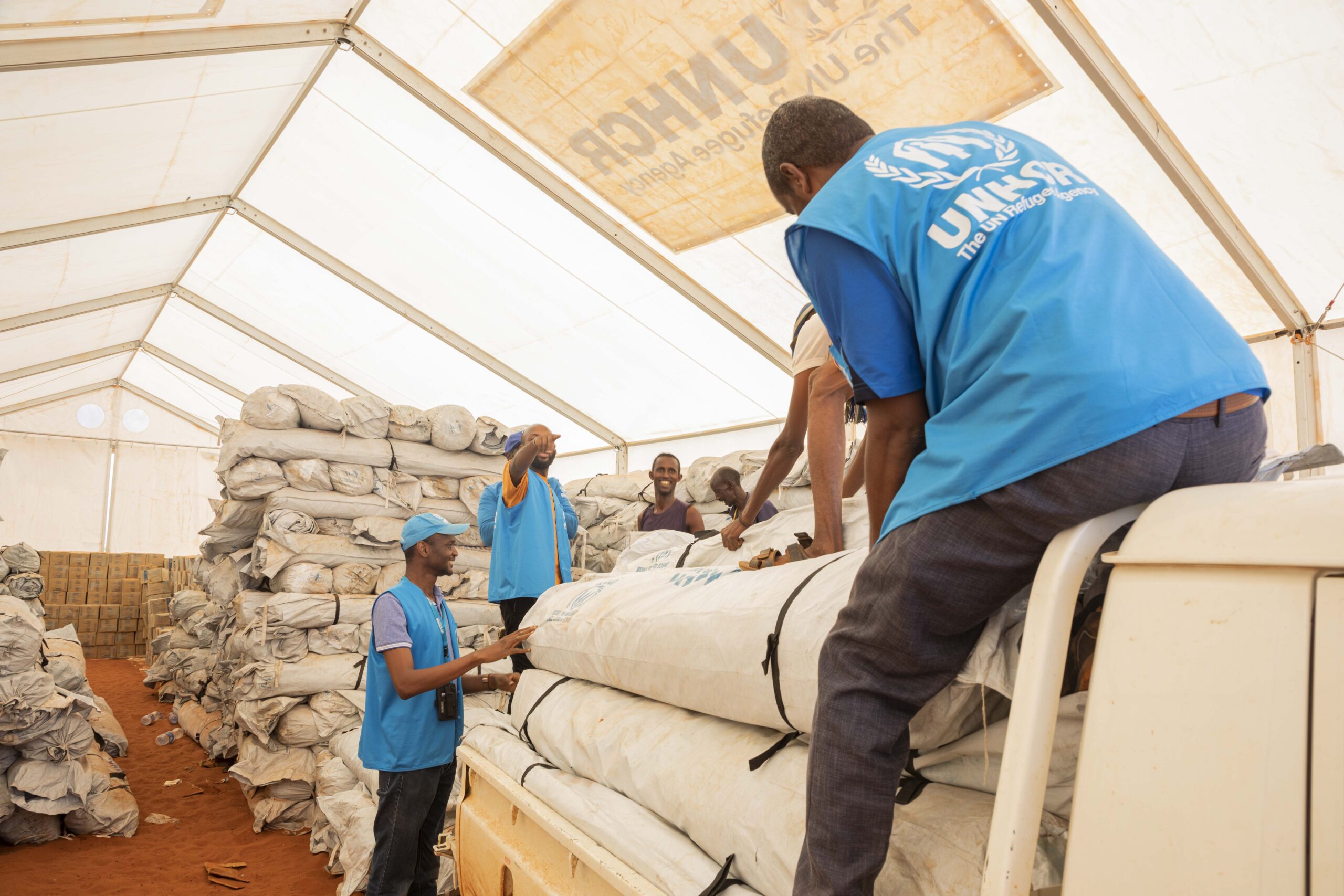
Since refugees started to arrive in these hard-to-reach areas, UNHCR together with Ethiopian authorities and partners have been on the ground providing life-saving assistance and protection. UNHCR has for example installed emergency shelters, including 1,200 family tents.
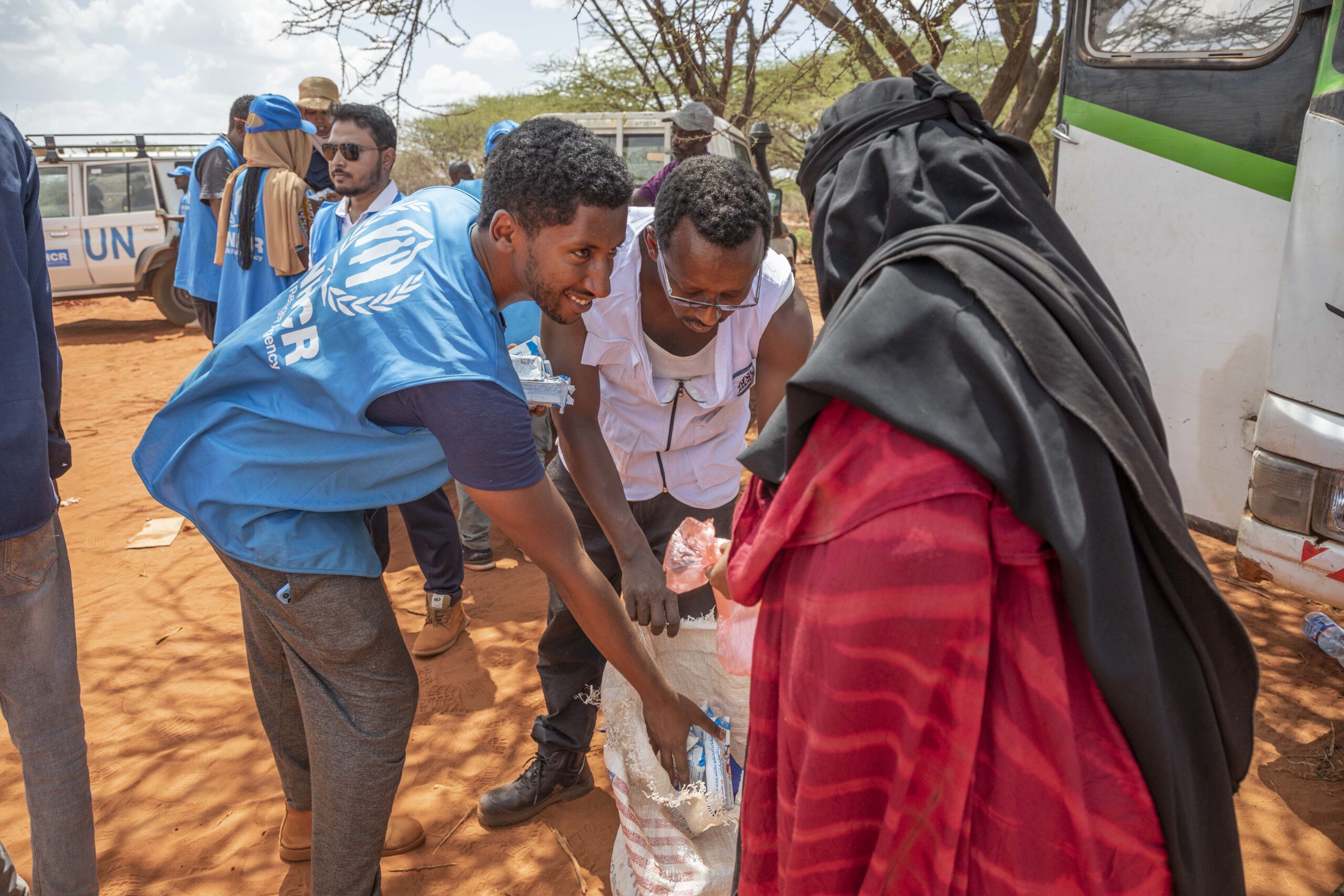
10,000 kits of basic humanitarian aid have been handed out to ensure a minimum standard of living for the newly arrived refugees. These kits include necessary items such as kitchen supplies, mosquito nets, sanitary cloths and sleeping mats.
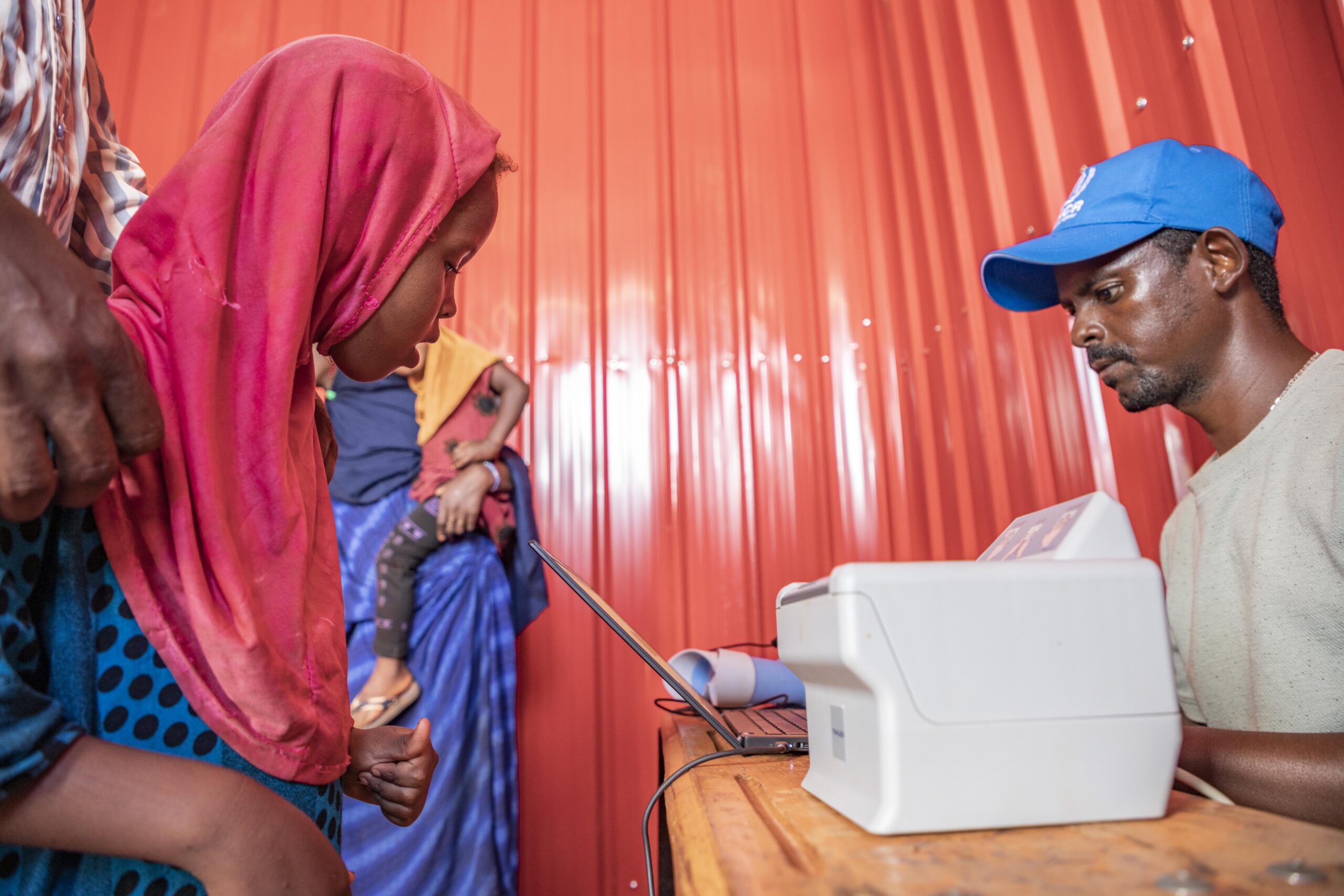
Protection desks have been set up to identify vulnerable individuals and refer them to proper services. This includes for example women and children at risk and individuals with disabilities or other special needs. Family tracing and reunification support programmes have also been put in place.
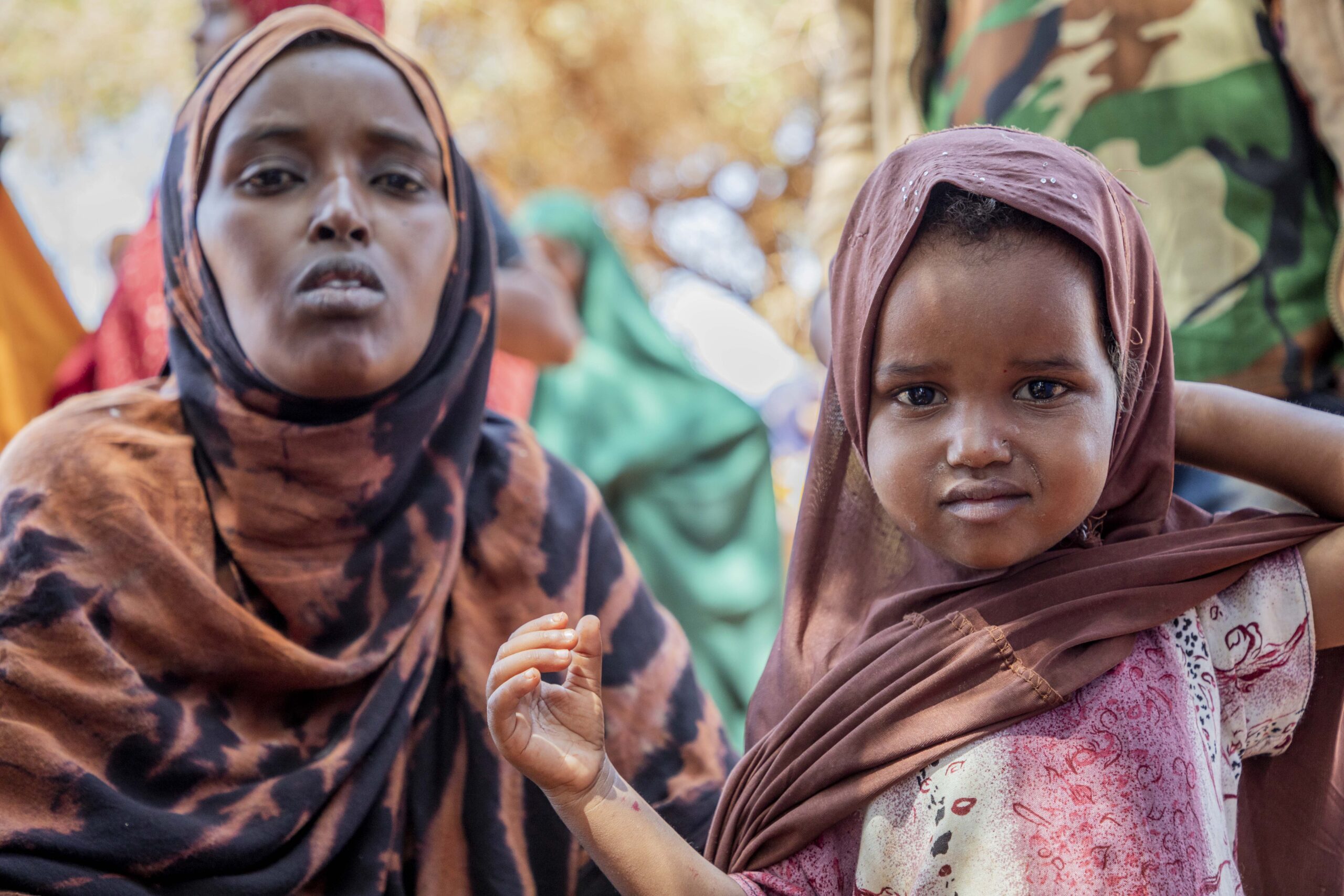
With the high numbers of women among the refugees, UNHCR is prioritizing response to, and prevention of, gender-based violence. UNHCR have, together with partners, mapped out available medical service and is training local staff to support GVB survivors.
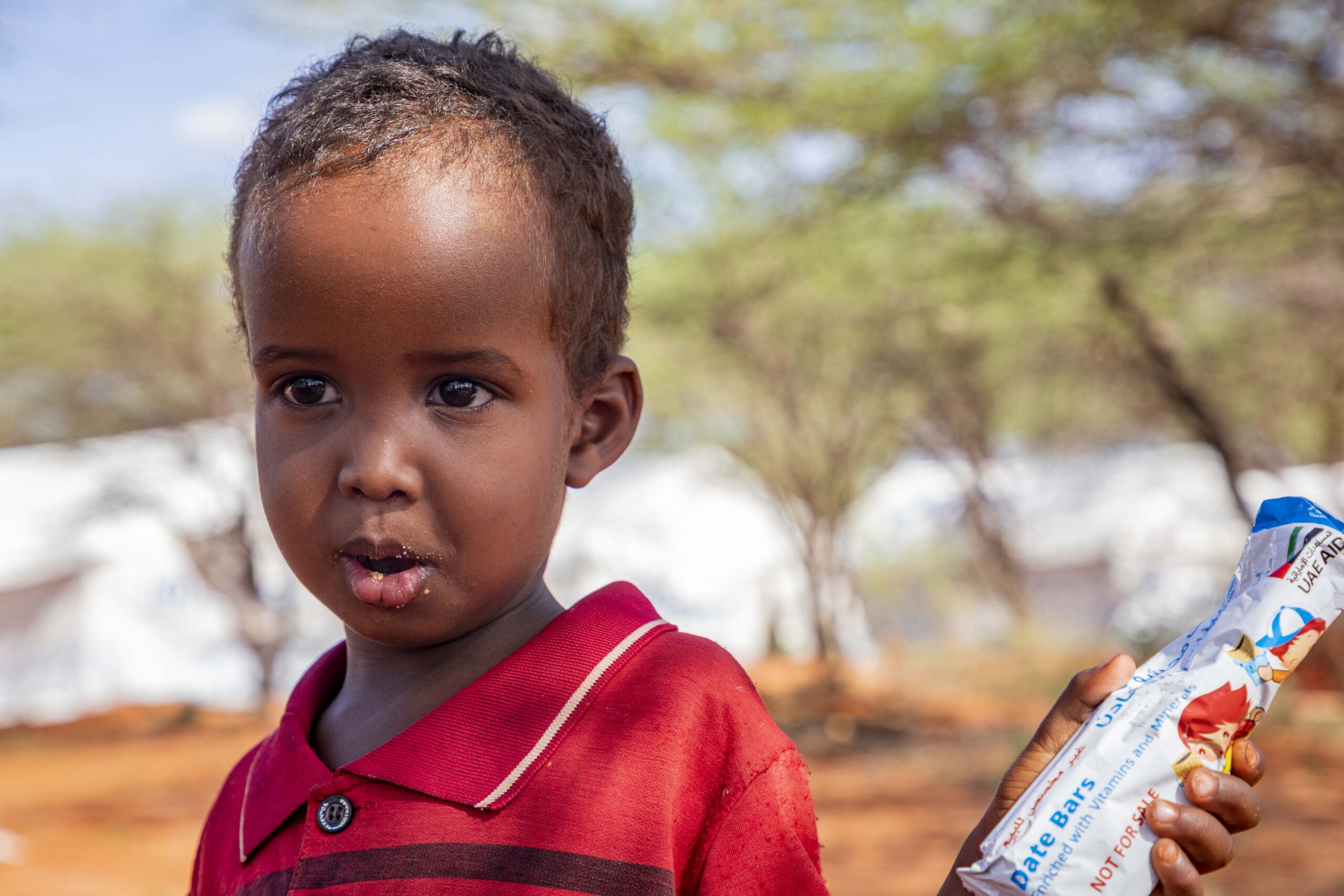
The humanitarian situation on the ground is critical, and malnutrition is observed in many children under five and in pregnant and nursing mothers. UNHCR is handing out emergency food to meet the most immediate food and nutrition needs of new arrivals.
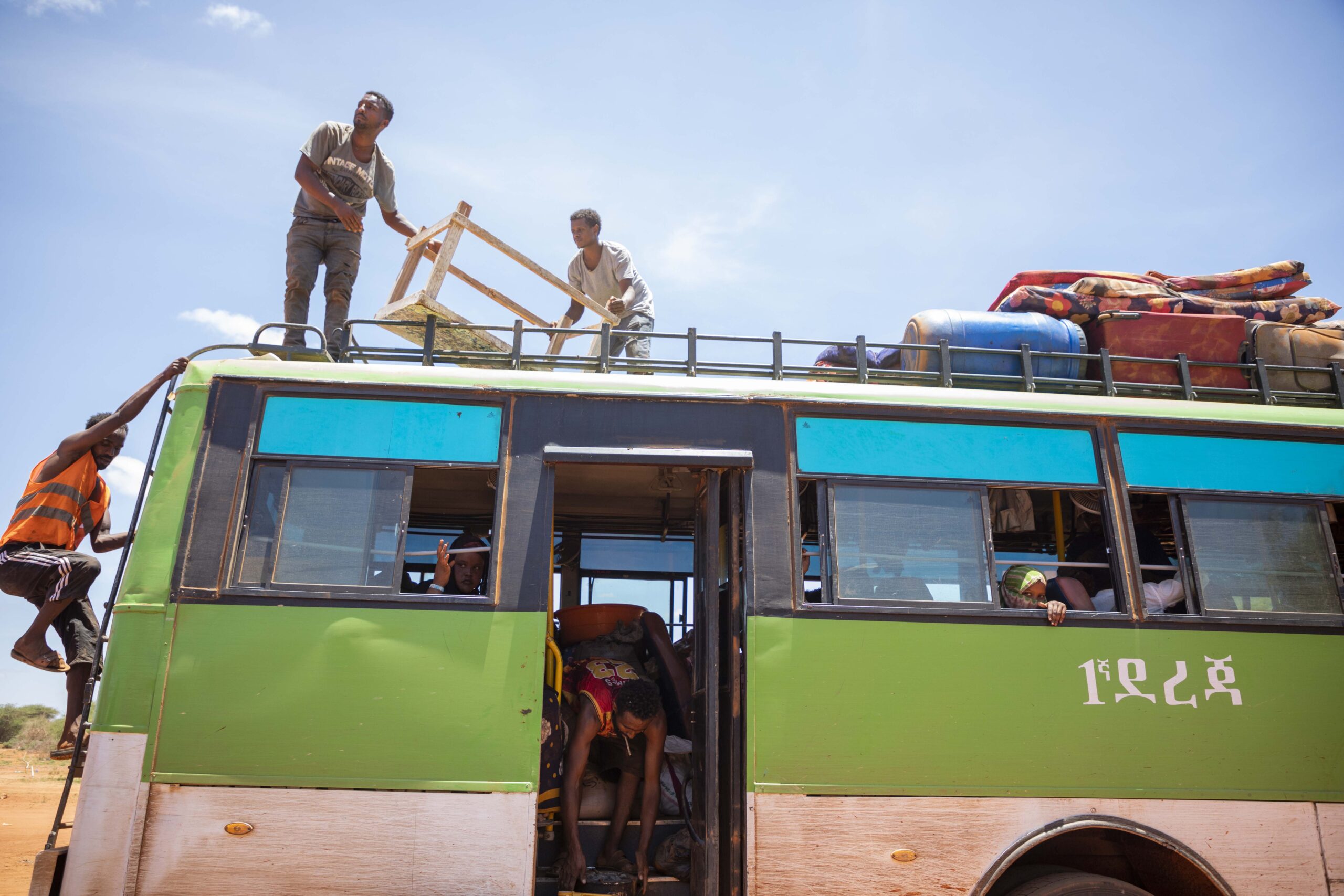
As the refugees have arrived in an area that is extremely remote and hard-to-reach, UNHCR together with other UN agencies have started relocating the newly arrived Somali refugees to more suitable areas with already existing services. So far, close to 11,000 of the most vulnerable refugees have been moved to a new settlement, Mirqaan, further from the border. UNHCR is also working with local authorities in locations hosting refugees to help facilitate integration and ensure they can live harmoniously with local host communities.
Denmark as a donor
Denmark has, thus far in 2023, contributed over USD 89,3 million to UNHCR, of which USD 35.6 million is unearmarked. Denmark has entered a five-year agreement with UNHCR for the period 2022-2026 and is committed to continued flexible contributions and support for sustainable solutions. In 2022, Denmark was the 8th biggest government donor and the 4th largest donor per capita.
Share on Facebook Share on Twitter